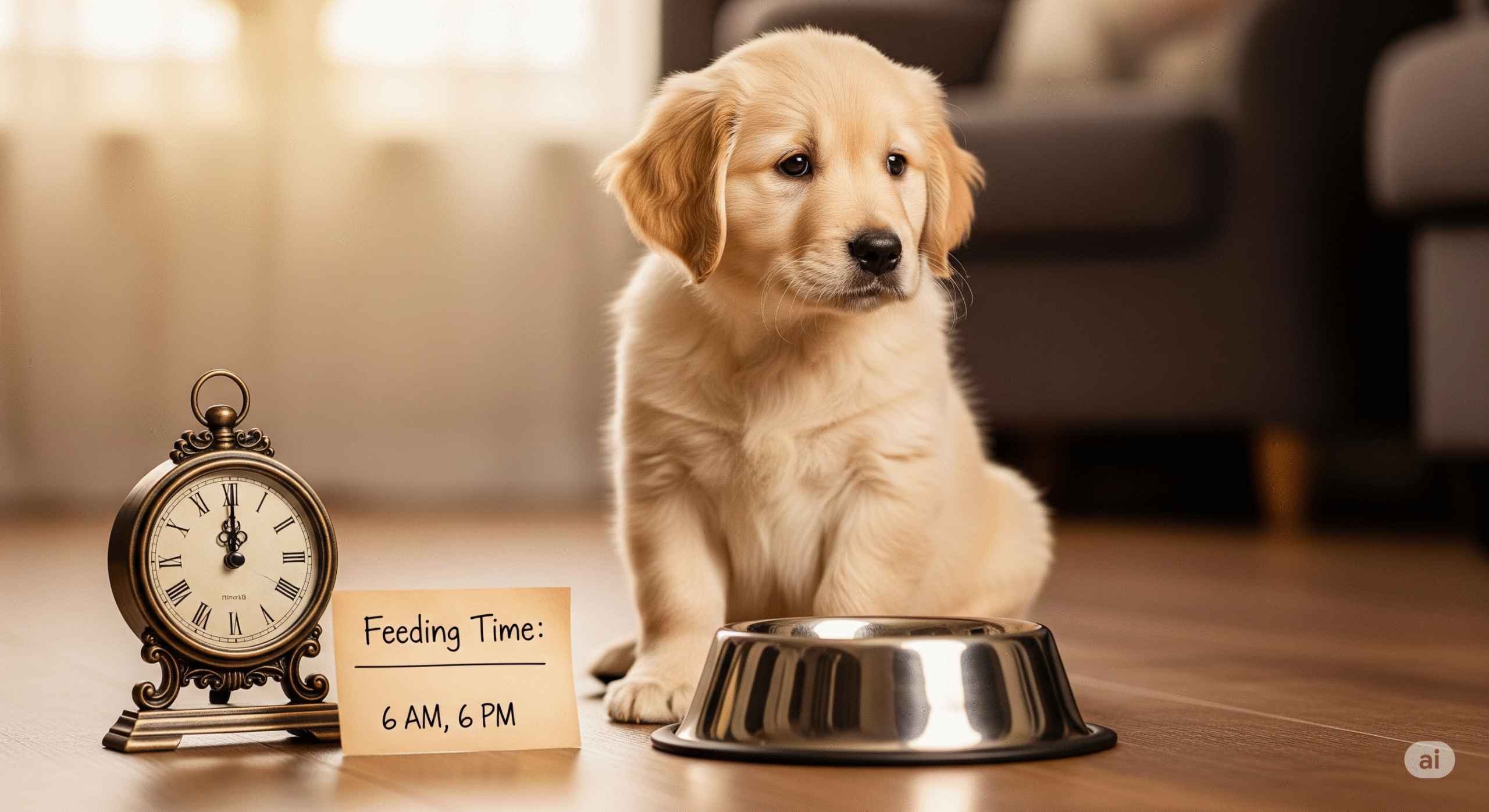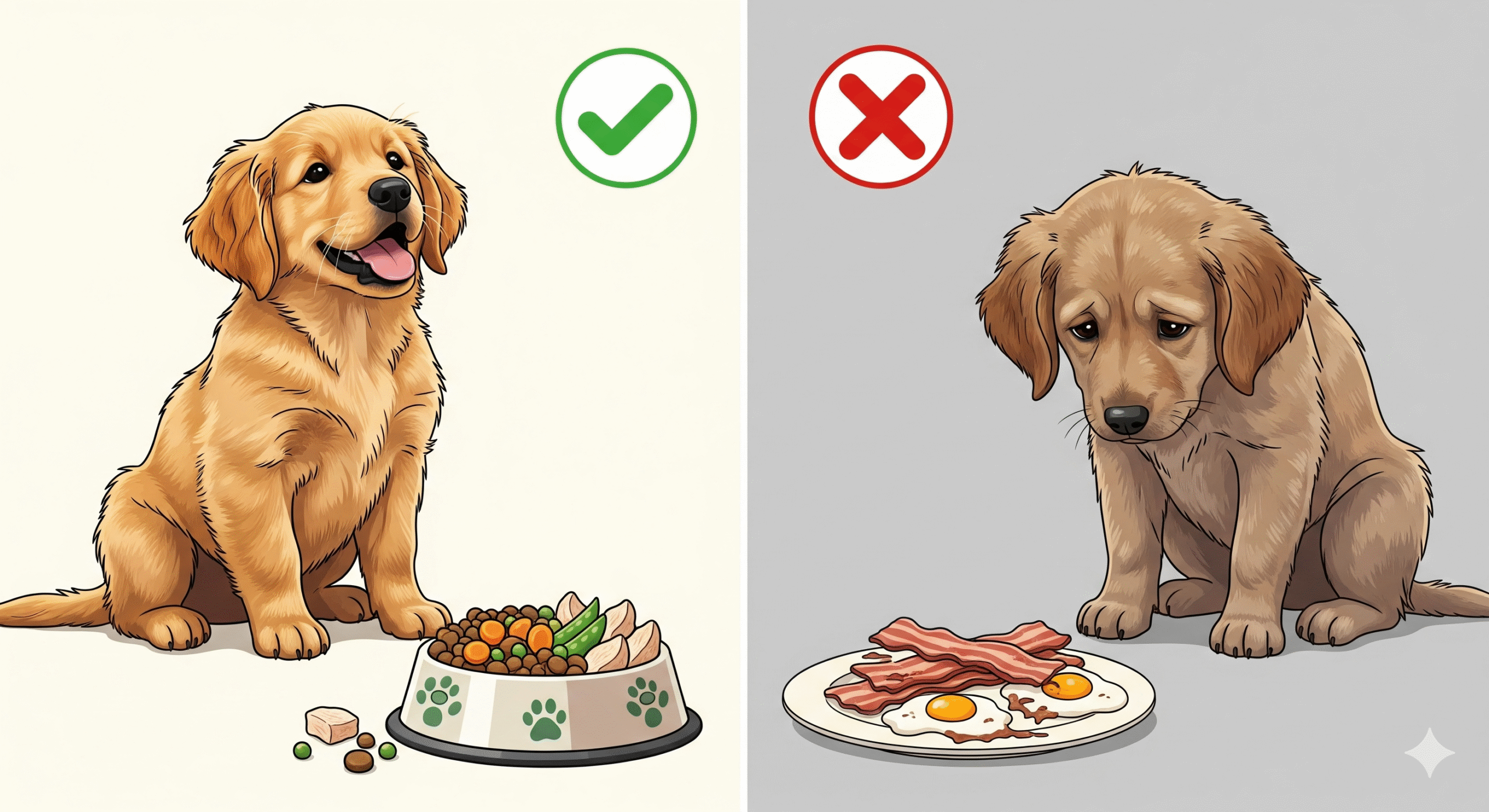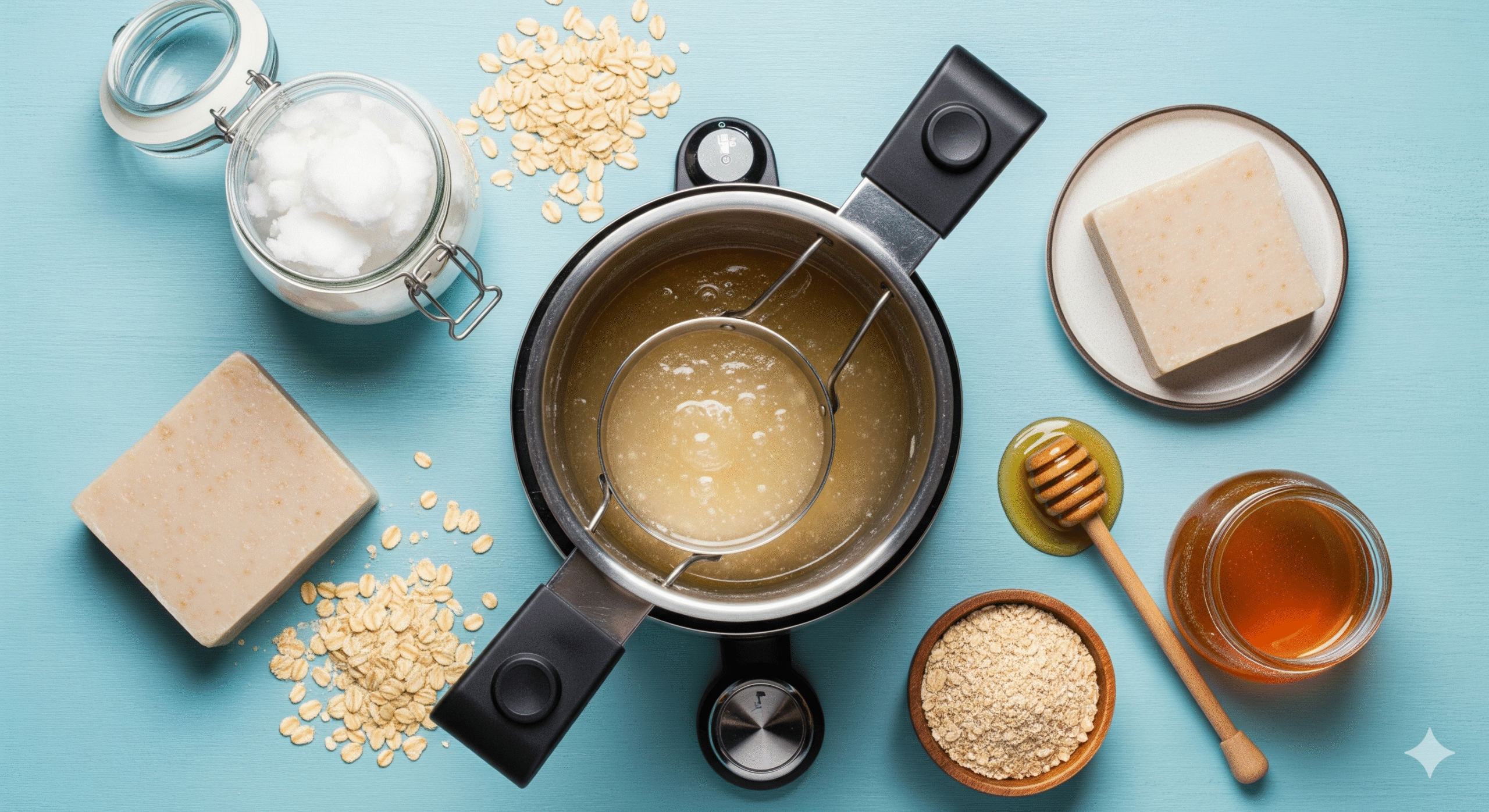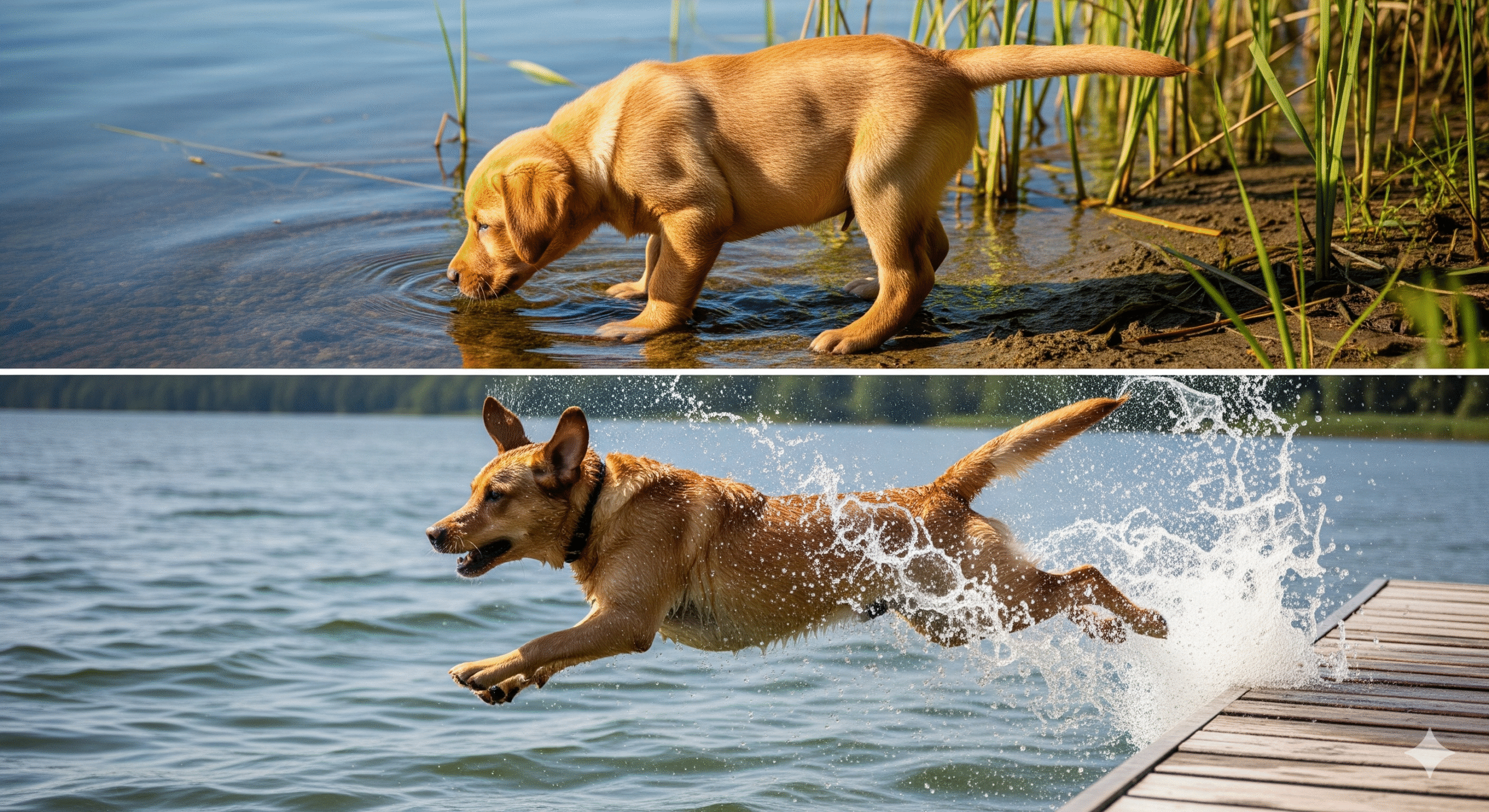Getting your puppy’s feeding schedule right is crucial for their growth, digestion, and housebreaking success. Feed too often, and you’ll have constant potty breaks; too infrequently, and your pup may develop low blood sugar or become food-obsessed.
This veterinary-approved guide covers:
✔ Ideal meal frequency from 8 weeks to adulthood
✔ Special schedules for toy vs. giant breeds
✔ How to transition between feeding frequencies
✔ Troubleshooting common feeding problems
Let’s create the perfect meal routine for your growing pup!
Why Feeding Frequency Matters 🧠
Puppy Metabolism Basics</H3>
- Puppies burn 2-3x more calories than adult dogs
- Small breeds have faster metabolisms (need more frequent meals)
- Large breeds need controlled growth to prevent joint issues
Key Benefits of Proper Scheduling:
✅ Prevents hypoglycemia (dangerous in toy breeds)
✅ Supports consistent potty training
✅ Reduces begging behavior
✅ Helps monitor appetite changes (early illness detection)
Standard Puppy Feeding Schedule by Age 📅
8-12 Weeks Old (4x Daily) 👶
Sample Schedule:
- 7 AM
- 11 AM
- 3 PM
- 7 PM
Special Notes:
- Soak kibble in warm water for easier chewing
- Last meal should be 2+ hours before bedtime for potty training
3-6 Months Old (3x Daily) 🐕
Sample Schedule:
- 7 AM
- 1 PM
- 6 PM
Transition Tip:
Merge the midday meals gradually over 5-7 days
6-12 Months Old (2x Daily) 🦮
Sample Schedule:
- 7 AM
- 6 PM
Exception:
Toy breeds may need 3 meals until 9 months
Breed-Specific Adjustments 🐩🦮
Toy Breeds (<10 lbs) 🐶
- 8-12 weeks: 4-5 meals
- 3-6 months: 4 meals
- 6-12 months: 3 meals
- Adult: 2-3 meals
Why More Frequent?
Prone to hypoglycemia (low blood sugar)
Giant Breeds (>80 lbs) 🐕🦺
- All ages: Never free-feed
- 8-12 months: May need 3 meals longer to support growth
- Use slow-feed bowls to prevent bloat
How to Transition Between Schedules 🔄
From 4 → 3 Meals:
- Days 1-3: Skip the 11 AM meal, redistribute that food to other meals
- Days 4-7: Adjust to new 3-meal timing
From 3 → 2 Meals:
- Gradually move the lunch portion to breakfast/dinner
- Increase walk duration to compensate for energy dips
Pro Tip:
Transition during low-stress periods (not during vet visits or travel)
Meal Timing for Potty Training Success 🚽
Ideal Potty Break Schedule:
- Morning: Potty → Feed → Potty again in 20-30 mins
- Evening: Feed → Potty walk → Last chance potty before bed
Accident Prevention:
- Puppies typically need to poop 30-60 mins after eating
- Always offer water with meals, then limit 1-2 hours before bedtime
Special Feeding Situations ⚠️
For Puppies Who:
Eat Too Fast:
- Use puzzle feeders
- Place large rocks in bowl (too big to swallow)
Skip Meals:
- Try warming food slightly
- Hand-feed first few bites to stimulate appetite
Have Medical Needs:
- Diabetic pups: Strict 12-hour intervals
- Recovering from parvo: 6+ small meals daily
Sample Feeding Schedules 🍽️
Small Breed (Chihuahua) 10 Weeks Old
⏰ 7 AM: ¼ cup soaked kibble
⏰ 11 AM: ¼ cup + probiotic
⏰ 3 PM: ¼ cup
⏰ 7 PM: ¼ cup with teaspoon pumpkin
Large Breed (Labrador) 5 Months Old
⏰ 7 AM: 1 cup large breed puppy food
⏰ 1 PM: 1 cup in slow feeder
⏰ 6 PM: 1 cup + fish oil
When to Adjust the Schedule 🔧
Increase Frequency If:
- Puppy seems lethargic between meals
- Vet diagnoses hypoglycemia
Decrease Frequency If:
- Consistently leaves food in bowl
- Has loose stools from overeating
Transitioning to Adult Dog Schedule 🐕→🐶
When to Switch:
- Small breeds: 9-12 months
- Large breeds: 12-24 months
How to Transition:
- Gradually reduce lunch portion over 2 weeks
- Increase breakfast/dinner amounts accordingly
- Monitor weight/energy levels
Final Pro Tips 🌟
✅ Use measuring cups – no eyeballing portions!
✅ Record feeding times to spot patterns
✅ Consult your vet before making major changes
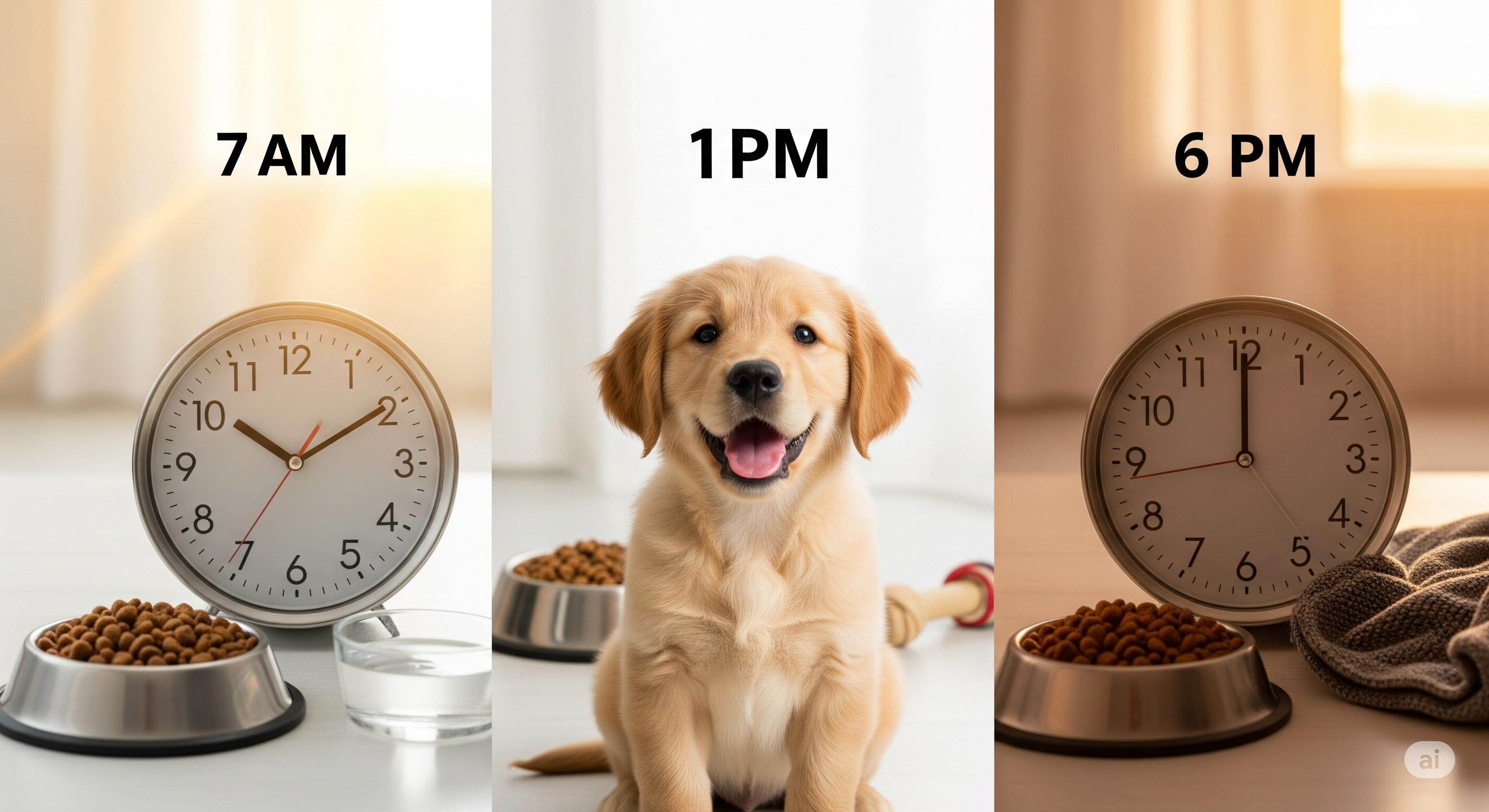
…Now that you can confidently read a dog food label, you can choose the best possible nutrition for your puppy. And if you decide to change their diet based on what you’ve learned, we can help you make the change safely. Check out our guide on switching puppy food without causing diarrhea to ensure a happy transition

